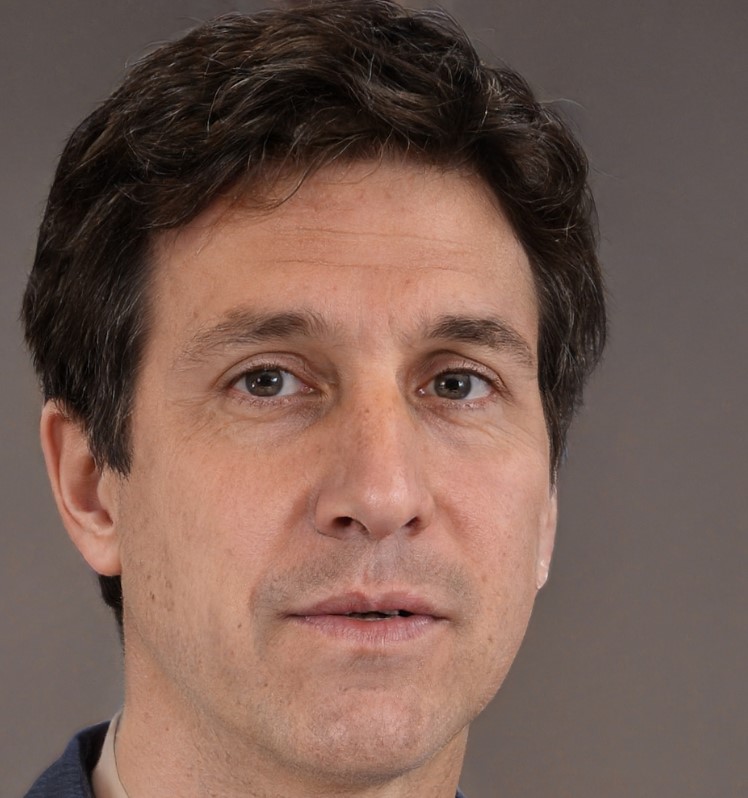Two doctoral paths stand at the top of education. One prepares professionals to apply research in leadership and administration, and the other shapes scholars who create original knowledge through academic study.
The Doctor of Education, or EdD, focuses on applying evidence-based research to solve real problems within schools and organizations. The Doctor of Philosophy, or PhD, focuses on theoretical research that contributes new knowledge and informs future policy or educational models.
An EdD often attracts experienced educators who want to move into leadership roles such as school superintendent, education consultant, or university administrator. A PhD usually appeals to individuals who want to become professors or researchers and contribute through scholarly publications and long-term studies.
EdD programs usually offer part-time or online formats to accommodate professionals already in the workforce. PhD programs often require full-time study and demand several years of academic dedication.
Key Takeaways
- Focus: EdD applies research to solve problems in education leadership. PhD creates new theories and knowledge.
- Career Path: EdD leads to roles in administration, consulting, or executive education. PhD leads to teaching and academic research.
- Program Format: EdD programs often provide flexible, part-time, or online schedules. PhD programs typically follow a full-time, on-campus structure.
- Duration: EdD completion usually takes about three years. PhD completion often ranges from four to six years.
- Final Project: EdD culminates with an applied dissertation or field-based project. PhD concludes with a traditional, research-based dissertation.
What Each Degree Focuses On
A Doctor of Education and a Doctor of Philosophy both reach the highest academic level in education, but they serve different goals.
An EdD helps professionals apply research to solve practical problems in leadership and management. A PhD builds expertise in theory and research for those who want to advance knowledge through academic study.
Purpose of an EdD

The EdD trains educators and professionals who want to improve how institutions work. It focuses on leadership, data-driven decisions, and applying evidence to real educational settings.
Coursework often covers organizational change, instructional improvement, and strategic planning. Students learn to identify challenges within schools, government agencies, or corporations and design research-based solutions that can create measurable progress.
Many universities now offer online EdD programs in leadership for professionals who need flexible study schedules. Those programs allow participants to continue full-time work while completing doctoral coursework.
They attract teachers, administrators, and managers who want to strengthen leadership abilities and move into senior positions such as superintendent or academic director.
Purpose of a PhD in Education

The PhD in Education focuses on generating new research and theories. Students study research methodology, analyze educational systems, and design original studies that add new insight to the field. The goal is to advance understanding of how people learn, how education policy evolves, and how schools operate.
PhD candidates often publish research, present at conferences, and prepare for faculty or research positions. Their studies may focus on curriculum theory, education technology, or social policy.
The work usually takes place in academic environments that emphasize theory development rather than immediate application.
Practical vs Theoretical Focus
An EdD emphasizes action through research. A PhD emphasizes discovery through research. Both degrees rely on evidence and analysis but aim at different outcomes. An EdD prepares leaders who bring solutions into real institutions. A PhD prepares scholars who build the knowledge that others use in practice.
Career Paths in Education and Beyond
Graduates of EdD and PhD programs both move into influential careers, though their directions differ. EdD graduates often take leadership roles within education systems, public service, or private organizations.
Many become school superintendents, university administrators, chief learning officers, or policy advisors. Others enter consulting or nonprofit leadership where they can guide reform and program development.
PhD graduates usually pursue research or academic work. Many teach at universities, publish studies, and lead education research projects. Common positions include professor, academic researcher, or director of educational policy programs. Those roles allow PhD holders to shape theory, train new educators, and guide scholarly discussion.
Salary levels for both degrees remain strong. Postsecondary administrators earn around 102,000 dollars per year on average.
Professors and researchers usually earn between 84,000 and 86,000 dollars annually. Both degrees lead to high career stability and advancement potential.
EdD: Turning Research Into Action

An EdD gives professionals the tools to make real changes in schools, companies, and communities. It focuses on leadership and problem-solving, not only on theory.
Students learn how to collect data, interpret research, and apply it to everyday challenges that educators and organizations face.
Those programs are often built for people who already work full time. Many universities offer flexible or online formats, which help working educators earn their doctorate without leaving their careers. Most EdD candidates study topics such as:
- Educational leadership and policy
- Change management
- Equity in education
- Learning assessment and improvement
- Organizational strategy
Graduates often design projects that solve real issues. For example, one might explore how to increase teacher retention in rural districts or how to create more inclusive learning environments. The goal is always the same: to use research to create visible progress.
Professionals with an EdD usually move into senior leadership roles. They might guide school districts, manage college departments, or consult for government agencies. Many find the EdD valuable because it connects advanced knowledge with direct results.
PhD: Advancing Knowledge Through Research

A PhD in Education prepares people who want to teach, research, and contribute new ideas to the field. The main focus is on studying theories, analyzing educational data, and writing original research.
Students spend years exploring questions that push the boundaries of what educators know.
PhD programs include coursework in advanced statistics, research design, and theory development. Students then create a dissertation that presents new knowledge based on original research. Topics often include:
- Curriculum design and innovation
- Education policy and reform
- Learning sciences
- Higher education systems
- Social and cultural factors in education
Graduates often become professors or researchers at universities, government agencies, or education think tanks. Some lead national studies or influence policy at high levels. A PhD opens paths for those who want to build the knowledge that shapes education for future generations.
Program Structure and Learning Experience
EdD and PhD programs differ in how they are organized and what kind of learning experience they offer. The EdD is often structured for working adults who need flexibility.
Many programs run part-time or online and focus on applied projects. Students balance research with leadership training and professional collaboration.
PhD programs are more traditional and usually full-time. Students spend long hours in research labs or academic settings. Mentorship from professors plays a central role, and most candidates work on campus throughout their studies.
Key differences in structure include:
- Schedule: EdD programs offer part-time or online formats. PhD programs are mostly full-time and in person.
- Focus: EdD studies leadership and applied problem-solving. PhD focuses on theory and academic research.
- Environment: EdD students often work in teams with peers who hold leadership positions. PhD students work independently with research advisors.
How Long Each Program Takes

Time commitment is one of the main differences between the two degrees. An EdD is usually shorter, taking about three years to finish.
That timeline often includes coursework, research, and a practical dissertation focused on solving a real problem in education or leadership.
Many EdD programs use a cohort model, where students progress through the same courses together, building community and professional connections.
A PhD in Education typically takes four to six years to complete. The extra time comes from the depth of research required. PhD candidates spend years collecting data, analyzing results, and publishing academic papers. They also work closely with faculty mentors to refine their research before completing a dissertation defense.
A quick breakdown:
- EdD programs: Around 3 years on average.
- PhD programs: Around 4–6 years depending on research intensity.
- EdD dissertations: Applied or project-based.
- PhD dissertations: Traditional, theory-driven studies.
For professionals with families or full-time jobs, the EdD offers a more flexible path to advanced leadership. The PhD suits those who want to devote several years to focused, research-based study.
Dissertation and Final Requirements
The final stage of each program defines what kind of scholar or leader you become. EdD programs often end with a field-based project or applied dissertation.
The goal is to use research to address a specific problem, such as improving student performance, designing teacher training models, or evaluating leadership strategies. The result is a practical, actionable solution that benefits real institutions.
PhD programs end with a traditional dissertation based on original research. Students must develop a theoretical framework, collect and analyze data, and present findings that add something new to academic literature.
The PhD dissertation is often intended for publication and contributes directly to the field’s understanding of education systems, learning theory, or social equity.
Main differences include:
- EdD dissertation: Focused on applied research that produces real-world results.
- PhD dissertation: Focused on creating new theories or academic models.
- Audience: EdD work targets practitioners and policymakers. PhD work targets scholars and researchers.
Both dissertations require rigorous analysis, but the direction of impact differs—one changes practice, the other changes knowledge.
Admissions and Academic Requirements
Entry requirements for EdD and PhD programs reflect their distinct goals. EdD programs usually seek mid-career professionals who already hold a master’s degree in education or a related field.
View this post on Instagram
A strong GPA (often above 3.0) and relevant professional experience are key. Many applicants also submit leadership statements that explain how they plan to use their degree in practice.
PhD programs are more research-focused and academic in nature. Applicants often need prior research experience, strong analytical skills, and academic writing samples. Most programs also require GRE scores, letters of recommendation, and a detailed statement of purpose that outlines a potential research topic.
Typical entry steps for both include:
- Submitting transcripts and application forms.
- Providing a resume or CV.
- Writing a personal or research statement.
- Attending interviews or information sessions.
Both programs can be completed either online or on campus, depending on the university. EdD programs tend to favor flexible options for working professionals. PhD programs often expect on-site research and closer faculty collaboration.
Salaries and Career Growth

Both degrees lead to strong career advancement and higher earning potential.
According to data cited by universities and the Bureau of Labor Statistics, professionals with doctoral degrees in education earn an average annual salary around 109,000 dollars.
The career options available depend largely on the degree path chosen.
For EdD graduates:
- Postsecondary administrators: Oversee departments, admissions, and faculty. Average salary about 102,000 dollars.
- Superintendents: Lead school districts and manage budgets. Average salary about 111,000 dollars.
- Chief learning officers: Shape training strategies within corporations or government. Average salary about 103,000 dollars.
For PhD graduates:
- Professors: Teach at universities and publish research. Average salary around 84,000 dollars.
- Academic researchers: Conduct independent or institutional research. Average salary near 86,000 dollars.
Both paths lead to stability, prestige, and influence. The EdD prepares leaders to manage systems effectively. The PhD prepares scholars to shape education policy and theory.
Which Degree Fits Your Goals Best
Choosing between an EdD and a PhD depends on personal motivation and career vision. The EdD fits professionals who want to apply what they learn to real challenges, influence policy, and lead people. The PhD fits those who love research, want to publish, and aim to teach or shape the academic foundation of education.
A simple way to decide:
- Choose EdD if you want to lead organizations and apply research.
- Choose PhD if you want to teach, publish, and expand theory.
Bottom Line
Both the EdD and the PhD represent commitment, expertise, and a deep passion for education. Each path leads to strong career growth, but follows a different route. The EdD prepares leaders who want to solve problems, guide institutions, and turn research into progress.
The PhD prepares thinkers who want to create new knowledge, publish research, and influence education on a global level.
The best degree depends on personal goals and what kind of impact feels most rewarding. Professionals who want to lead and implement change fit the EdD path.
Those who want to study, teach, and contribute to academic research fit the PhD path. Both offer the chance to shape education and leave a lasting mark on how people learn and grow.


